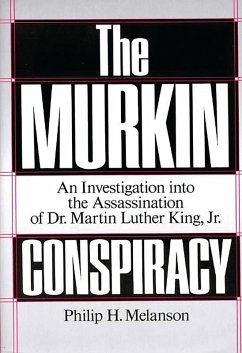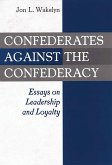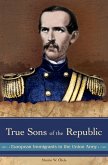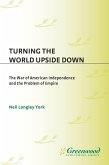Murkin was the code name chosen by the FBI for their investigation into the assassination of Dr. Martin Luther King, Jr., in 1968. Today, 20 years after the fatal shooting of the civil rights leader, Philip H. Melanson, a renowned authority on American political assassinations, unveils his own investigation into the murder. Melanson . . . has done an exhaustively thorough job on the still-mysterious King assassination. After following Melanson's meticulous pursuit of seemingly every lead in the case--including interviews with the men whose names were used as aliases for alleged killer James Earl Ray--there can be little doubt in the reader's mind that neither of the two official versions of what happened could have been the whole truth. The first was the ever-popular notion of the lone killer: Ray. The second, propounded by a clearly inept congressional investigation a decade after the 1969 shooting, was that an ill-defined racist conspiracy was behind the assassination. What seems unarguable is that Ray, a petty criminal, could not have killed King unaided. There are too many improbabilities--the source of his carefully chosen Canadian aliases, the identity of the `fat man' who brought him a `letter' in Toronto during his escape, the odd setup at the rooming house from which the shot was fired. It is Melanson's thesis that there was high-level intelligence involvement, probably by the CIA, which was violently alarmed by King's anti-Vietnam stance. Publisher's Weekly Murkin was the code name chosen by the FBI for the investigation into the assassination of Dr. Martin Luther King, Jr., in 1968. Today, twenty years after the fatal shooting of the civil rights leader, Philip H. Melanson, a renowned authority on American political assassinations, unveils his own investigation into the murder. Through extensive interviews, research, and Freedom of Information Act requests, Melanson analyzes the official investigations, the evidence, the performance of law enforcement officials, the role of James Earl Ray, and the questions of conspiracy. Much of the data presented has never before been published. Based on his detailed investigation, Melanson offers a revisionist interpretation of the King case, demonstrating that it remains unsolved. Melanson argues persuasively that both the FBI's conclusion that Ray acted alone and the later 1978 House Select Committee on Assassinations decision that Ray was backed by a conspiracy of St. Louis-based white supremacists are not supported by the evidence. Although Melanson concludes that Ray did not, in fact, act alone, he contends that the official investigations were so flawed that the conspirators behind him are still unidentified. His own conclusions regarding the probable source of the conspiracy offer a sobering indictment of the ways in which powerful interests, left unchecked, can wreak havoc on American democratic processes.
Bitte wählen Sie Ihr Anliegen aus.
Rechnungen
Retourenschein anfordern
Bestellstatus
Storno









